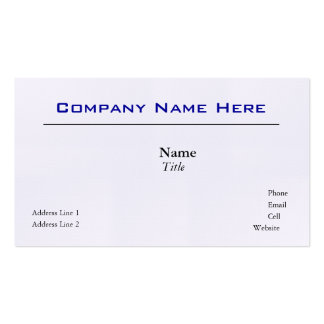“Machine learning is a core, transformative way by which we’re rethinking everything we’re doing.”
– Sundar Pichai, Google CEO
Professional SEOs are used to Google shaking things up. Several times a year, the company changes its algorithms and throws a monkey wrench into everyone’s SEO blueprint. The idea that Google is currently pursuing, however, could change the game of search in its entirety and finally bring those “SEO is dead!” headlines to fruition.
Last month at Google’s I/O developer’s conference, the masters of search brought forth their newest offerings to the world; its new virtual assistant accompanied with its voice-activated home product dubbed Google Home.
The new virtual assistant brings machine learning to a new level as it fuses Google search data, user profiles and location information, the knowledge base of Google Now, and anything else the AI can pull from to provide intelligent answers that it will then speak back to the user. Google Home, which will tout the same AI support, seeks to bring search into a new era where users will never need to visit a website, read a piece of content, or sit in front of a desktop or mobile device for answers again.
This very notion seems a touch mad — this kind of hands-free user interaction would bring about the demise of the omnipresent search engine itself due to its business relying largely on selling ads. After all, how can Google possibly sell text-based ads that link to websites on this type of a platform?
Despite the fact that Google’s cost-per-click (CPC) continues to drop, the company is still the dominating force in digital ad real estate and rakes in unspeakable amounts of cash from ad sales. Google’s parent company, Alphabet, relies on AdWords so much that 88 percent of its $75 billion in revenue last year was derived from this source.
By all accounts, it seems that Google is headed for a major restructuring in how the company pulls in revenue. Google CEO Sundar Pichai has been quoted as saying, “Our investments in machine learning and artificial intelligence are a priority for us,” and that Google is “. . . thoughtfully applying it across all our products, be it search, ads, YouTube, or Play.”
So then, where will Google’s cash flow come from if its new products and apps take flight?
EMarketer senior forecasting analyst Martin Uteras is confident that Google will find the solution: “The ad business isn’t going away any time soon, but they’re looking at all these new areas and as those products gain a larger user base, the question is how do you monetize those?”
It isn’t just Google’s own products that potentially endanger the company’s own wellbeing and the future of search engines. As individuals are spending increased amounts of time in apps like Facebook, Instagram, and a variety of others, these platforms are beginning to eat up a larger portion of the advertising business. Facebook, which began selling ads six years after Google, now accrues approximately a quarter of the ad revenue of Google. Twitter also entered its hat into the ad arena several years back, Instagram recently began doing the same, and others such as Snapchat are sure to follow. This poses a significant problem for Google as apps continue to consume more of mobile user’s time and attention.
These social outlets are also beginning to offer more creative ads and more valuable user information than that provided by Google, all while circumventing ad-blocking software, which is more popular than ever before. As it currently stands, Google is still making up for these losses with the combined revenue from the YouTube video app along with the Play store app.
Financial analysts also say that it is premature to worry about the rise of digital personal assistant and the move away from traditional search. But with all of this information laid out, one can’t help but to wonder if Google could potentially be killing the current search engine model intentionally due to the rampant nature of apps and social media’s adoption of creative advertising.
If this is in fact the case, how will the ads of the virtual-assistant-run future work? If a Home user asks it to book a lunch reservation through OpenTable, will Google play an audio ad first? Not likely considering that the purpose of the device is to provide fast, accurate answers. Then maybe Google will abandon ads altogether and charge a fee to the business it connects the user to. If this is the case, transactional revenue could be a potential goldmine for a once ad-based business to adopt.
All speculation aside, Omar Siddiqui, CEO of chatbot tool developer Kiwi Inc., weighed in on the matter stating, “With virtual assistants, we’re at where Web pages were in 1995. Business models have yet to emerge.”
The future of search is very unclear as new and unforeseen devices enter the marketplace. The fact is, at some point, search will have to evolve past its current incarnation as more devices like Home, Alexa, and other AI products become a reality. Eventually, the world will reach a point where the Internet is no longer accessed as it is now and businesses will have to figure out how to survive in that type of digital climate. As Google, Microsoft, Facebook and others are currently hard at work on AI, machine learning, and other products that will undoubtedly reshape the digital landscape, it is only a matter of time before this point is reached. For now, all businesses can do is keep a close eye on the matter at hand and do their best to change with the times.
Do you think Google is intentionally changing how search will work in the future? What do in-home devices like Google Home spell for the future of businesses that advertise with Google?








No comments:
Post a Comment